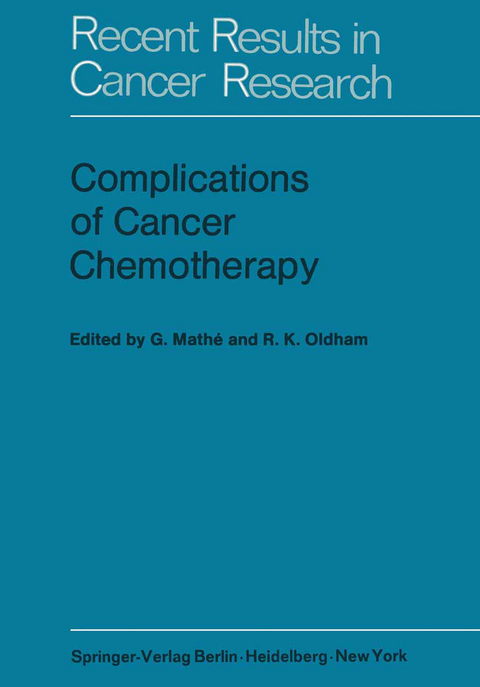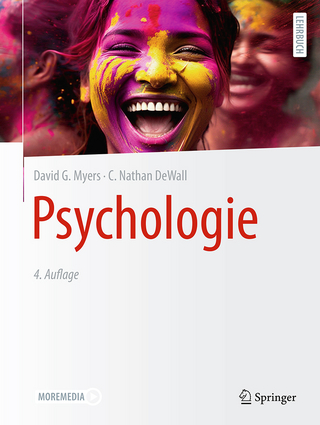
Complications of Cancer Chemotherapy
Springer Berlin (Verlag)
978-3-642-80850-0 (ISBN)
Application of Large Animal Toxicology to the Qualitative and Quantitative Prediction of Drug Toxicity in Man.- Hematological Toxicity: Biological Basis.- Immunological Toxicity of Cancer Chemotherapy.- Bacterial and Fungal Infections During Cancer Chemotherapy.- A Study of Viral Infections in Patients Treated with a Combination of 6 Mercaptopurine-Methotrexate: Preliminary Results.- Role of Gnotobiotic Care in Chemotherapy of Acute Leukemia.- White Blood Cell Transfusions in Leukemic Patients with Severe Infections.- Efficacy of Platelet Transfusions from HL-A Compatible Unrelated Donors to Alloimmunized Patients.- Immune Responsiveness in Acute Lymphocytic Leukemia Patients under Chemotherapy and Immunotherapy: A Preliminary Report.- Transfer Factor Therapy in Immunodeficiencies.- Reconstitution of Cellular Immunity in Hodgkin's Disease with Transfer Factor.- Complications of Cancer Chemotherapy. The Special Case of Hormones.- Factors Modifying the Activity and Toxicity of Anticancer Agents.- Modification of Drug Metabolism Induced in the Host by the Presence of a Tumor.- IS Local Chemotherapy Less Toxic than Systemic?.- Pharmacokinetic Simulation: A Future Means for Better Control of Cancer Chemotherapy.- Carcinogenesis by Cancer Chemotherapeutic Agents: Second Malignancies Complicating Hodgkin's Disease in Remission.- Malignancies Possibly Secondary to Anticancer Therapy.- Prevention of Chemotherapy Complications: Time, Toxicity, Pharmacokinetic, Pharmacodynamic and Logistic Factors.
| Erscheint lt. Verlag | 9.1.2012 |
|---|---|
| Reihe/Serie | Recent Results in Cancer Research |
| Zusatzinfo | VI, 142 p. 4 illus. |
| Verlagsort | Berlin |
| Sprache | englisch |
| Maße | 170 x 244 mm |
| Gewicht | 274 g |
| Themenwelt | Geisteswissenschaften ► Psychologie ► Klinische Psychologie |
| Medizin / Pharmazie ► Gesundheitsfachberufe | |
| Medizin / Pharmazie ► Medizinische Fachgebiete ► Onkologie | |
| Medizin / Pharmazie ► Medizinische Fachgebiete ► Psychiatrie / Psychotherapie | |
| Medizin / Pharmazie ► Physiotherapie / Ergotherapie ► Rehabilitation | |
| Schlagworte | Cancer • carcinoma • Cell • leukemia • Lymphoma • neoplasm • therapy • Tumor |
| ISBN-10 | 3-642-80850-6 / 3642808506 |
| ISBN-13 | 978-3-642-80850-0 / 9783642808500 |
| Zustand | Neuware |
| Haben Sie eine Frage zum Produkt? |
aus dem Bereich


